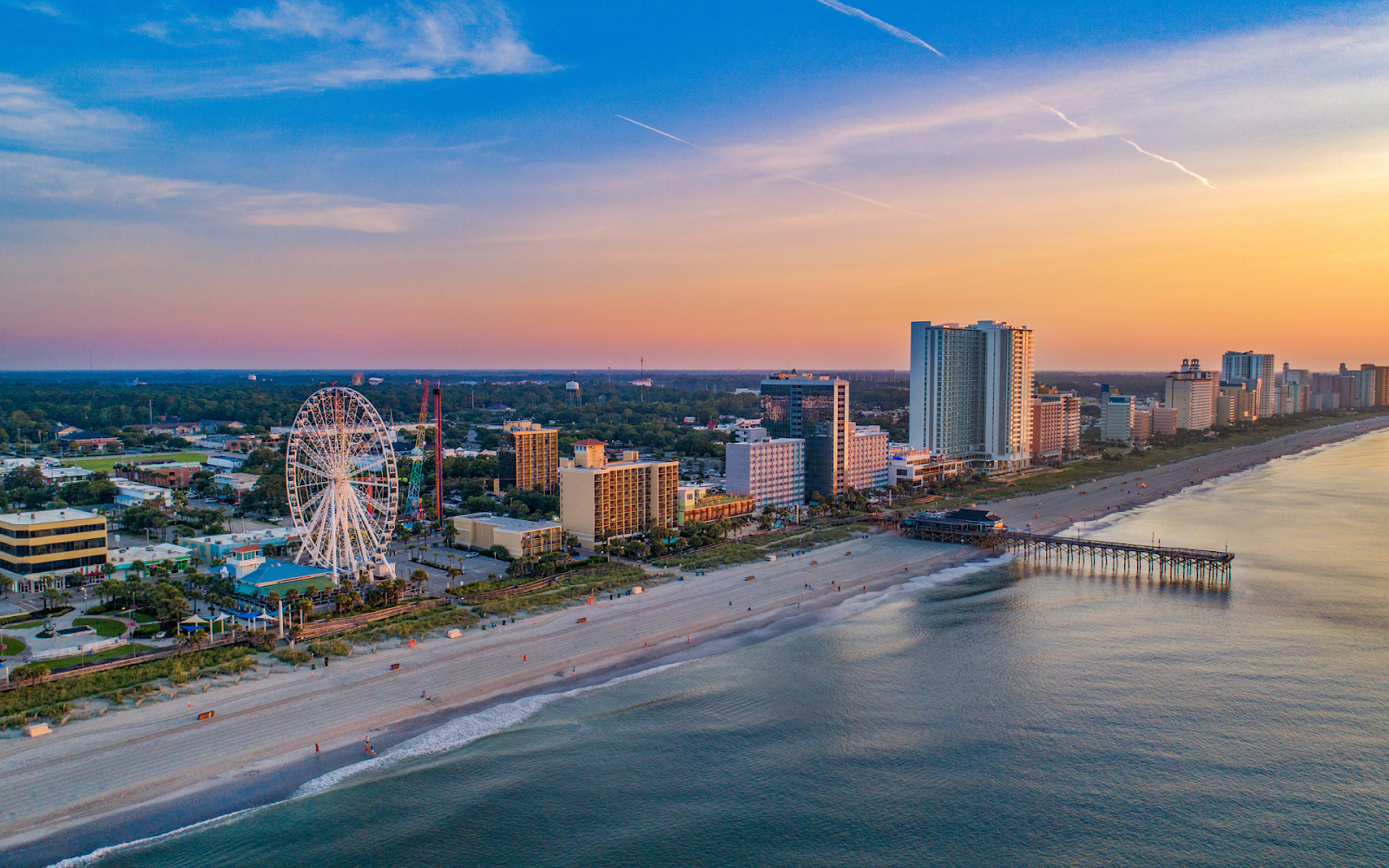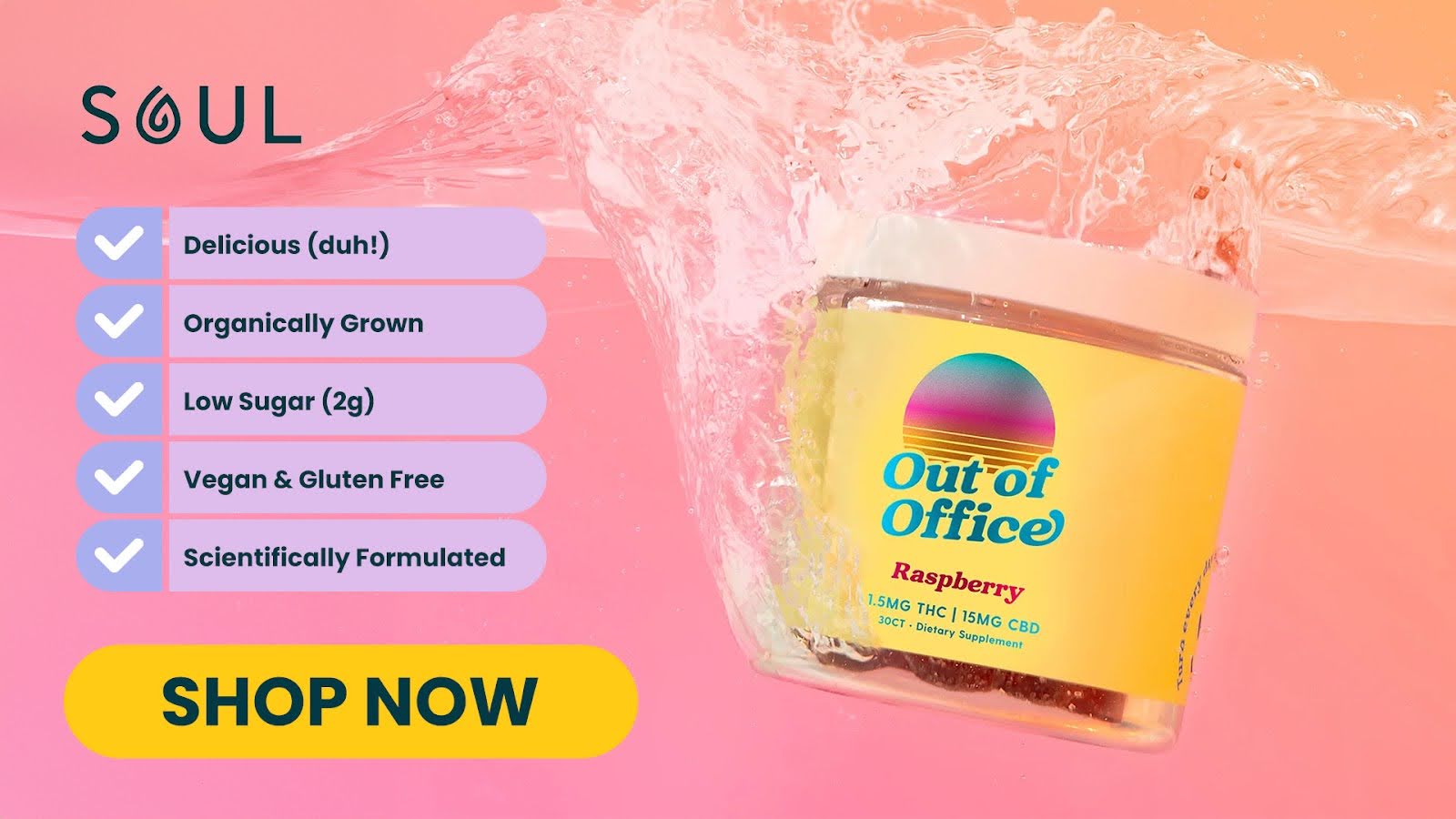
Key Takeaways:
- Strict THC Laws: South Carolina maintains strict laws against THC, permitting only limited medical use of low-THC CBD products.
- Severe Penalties: The state enforces severe penalties for THC possession, with increased consequences for subsequent offenses.
- Legal Alternatives: Legal alternatives such as CBD are available, providing therapeutic benefits without the psychoactive effects of THC.
Soul is a premier supplier of high-quality hemp-derived goods. In an industry where regulations are always changing, Soul sets the bar for quality and compliance. Soul is dedicated to going above and beyond local, state, and federal regulations to provide our clients with safe, functional products that comply with the law.
We'll examine the legal status of THC in South Carolina in this thorough guide, covering the state's existing legislation, possession penalties, and how federal regulations affect local initiatives. We'll also talk about THC substitutes that are allowed in the state and speculate about potential future developments for cannabis laws. Our mission is to provide you with the knowledge and assurance you need to successfully navigate South Carolina's complicated THC laws.
Understanding The Difference Between Medical And Recreational Use
In South Carolina, the distinction between medical and recreational use of THC is crucial, as the state's laws currently reflect different levels of tolerance and legal acceptance for each. Recreational use of THC remains illegal in South Carolina, with no framework in place to support legalization at this time. On the other hand, medical use is recognized but heavily regulated:
- Medical THC: South Carolina has a limited medical program that allows for the use of low-THC cannabidiol (CBD) products. These products are only legal when prescribed by a licensed physician for certain qualifying conditions, such as severe epilepsy.
- Recreational THC: Despite growing national trends toward legalization, South Carolina continues to enforce strict laws against the recreational use of THC. Possession, sale, and consumption for non-medical purposes are subject to legal penalties.
Understanding these distinctions is essential for residents and visitors in South Carolina to navigate the legal implications of THC use.
Current Laws Governing THC In South Carolina
Here are the key points regarding the current laws governing THC in South Carolina, which emphasize the state's restrictive stance:
Legal Status Of THC
In South Carolina, THC is classified as a Schedule I controlled substance, a classification that places it among drugs considered to have a high potential for abuse and no recognized medical value. This status affects all forms of THC, barring any approved medical programs beyond specific exceptions, and underscores the strict legal approach towards cannabis-related products.
Hemp-derived Products
Adhering to the federal guidelines established by the 2018 Farm Bill, South Carolina permits the sale and use of hemp-derived CBD products, as long as they contain less than 0.3% THC. These products are not subject to the same stringent regulations as THC-heavy products and can be sold legally across the state in various forms including oils, tinctures, and topicals, making them a more accessible option for residents.
Medical CBD
Under Julian's Law, South Carolina has instituted a narrowly tailored medical CBD program that allows patients suffering from severe forms of epilepsy or certain other medical conditions to use CBD oil containing up to 0.9% THC, provided they obtain a recommendation from a licensed physician. This law represents a limited acceptance of cannabis's medical use under controlled conditions, and while it marks a progressive step, it remains a highly restrictive piece of legislation compared to broader medical Hemp laws in other states.
Penalties For THC Possession In South Carolina
In South Carolina, the penalties for THC possession are notably severe, reflecting the state's stringent stance on cannabis. Here are more detailed descriptions of these penalties:
Simple Possession
Possession of one ounce or less of Hemp, which includes THC, is treated as a misdemeanor in South Carolina. For a first offense, individuals face up to $200 in fines and can be imprisoned for up to 30 days. This initial penalty, while seemingly modest, serves as a stern warning from the state against any form of recreational THC use.
Subsequent Offenses
The state's penalties for THC possession escalate with each subsequent offense. For individuals caught a second time, the fines can increase to $1,000, and the potential imprisonment period may extend up to one year. These heightened penalties are designed to deter repeat offenses and underscore the seriousness with which South Carolina views THC possession.
Possession With Intent To Distribute
When possession escalates beyond simple possession to possession with intent to distribute, the charges become significantly more serious. This classification depends on the amount of THC found, along with other factors such as how it is packaged or if scales and bags are present, suggesting distribution. Being caught in this capacity is considered a felony, with penalties including extended prison sentences that can span several years and fines reaching thousands of dollars. These severe penalties reflect South Carolina's zero-tolerance policy for drug distribution.
Impact Of Federal Laws On South Carolina's THC Regulations
Federal laws significantly influence the regulatory framework for THC in South Carolina. Here are expanded insights into how these laws impact state policies:
Controlled Substances Act
The federal Controlled Substances Act classifies THC as a Schedule I drug, placing it in the same category as heroin and LSD, which are deemed to have a high potential for abuse and no accepted medical use. This classification heavily influences South Carolina’s stance on cannabis, providing a legal basis for its strict regulations and enforcement practices. The state's alignment with federal law underscores its conservative approach to cannabis, affecting everything from legal enforcement to medical research permissions.
Farm Bill Influence
The 2018 Farm Bill was a pivotal federal legislation that distinguished hemp from Hemp by legalizing the production of hemp and hemp-derived products containing less than 0.3% THC. This distinction has allowed South Carolina to permit the sale and use of hemp-derived CBD products, creating a legal pathway for these products despite the state's otherwise stringent THC restrictions. This federal law has facilitated a growing market for CBD in South Carolina, providing residents with legal access to non-psychoactive cannabis products for relief and therapeutic purposes.
Federal Enforcement Priorities
Federal law enforcement priorities also shape how THC regulations are enforced at the state level. While the main focus of federal authorities typically centers on significant drug trafficking operations rather than individual possession, their approach can dictate the allocation of resources and strategic enforcement at the state level. This relationship is crucial in South Carolina, where state law enforcement works in tandem with federal agencies to tackle large-scale drug operations, often reinforcing the strict regulatory environment around THC.
Legal Alternatives To THC In South Carolina
South Carolina offers a few legal alternatives to THC that provide similar benefits without the associated legal risks. Here are more detailed insights into these options:
CBD Products
CBD (cannabidiol) is one of the most accessible and widely used alternatives to THC in South Carolina. As long as it is derived from hemp and contains less than 0.3% THC, CBD is legal under state and federal laws. Available in various forms such as oils, creams, edibles, and tinctures, CBD is utilized for a variety of therapeutic purposes, including anxiety relief, pain management, and inflammation reduction. Its non-psychoactive properties make it a popular choice for those seeking the benefits of cannabis without the high.
Kratom
Although not a cannabinoid and unrelated to the cannabis plant, kratom is used by some residents in South Carolina as an alternative for managing pain, boosting energy, and alleviating opioid withdrawal symptoms. However, the legality of kratom remains in a gray area and is subject to local legislative scrutiny, which can vary. Users should be cautious and stay informed about any potential changes to its legal status within the state.
Synthetic Cannabinoids
For those needing cannabinoid benefits within a strictly controlled framework, synthetic cannabinoids such as dronabinol may be prescribed. Dronabinol, an FDA-approved synthetic THC, is available for specific medical conditions like nausea induced by chemotherapy and appetite stimulation in AIDS patients. These substances are highly regulated, available only by prescription, and are considered legal alternatives for those who qualify under current medical guidelines.
Future Outlook On THC Legislation In South Carolina
The future of THC legislation in South Carolina remains uncertain, yet several emerging trends and ongoing discussions hint at potential changes. Here are expanded insights into these influences:
Growing Public Support
Increasing public support for the legalization of Hemp is evident nationwide, and this trend is gradually permeating South Carolina. Public opinion surveys and polls indicate a shift in residents' attitudes towards a more favorable view of cannabis legalization. This growing acceptance could play a crucial role in influencing lawmakers during future legislative sessions, potentially leading to relaxed laws or new policies regarding THC.
Economic Factors
The economic impact observed in states that have legalized cannabis could provide a compelling incentive for South Carolina. Legalization in other states has led to increased tax revenues, job creation, and stimulated economic growth through the establishment of new businesses in the cannabis sector. These economic benefits could serve as persuasive arguments for South Carolina legislators to reconsider the current restrictive stance on THC, especially in light of potential state revenue and economic development opportunities.
Medical Advocacy
There is a strong and active presence of advocacy groups within South Carolina pushing for an expansion of the existing medical Hemp programs. These groups argue the therapeutic benefits of cannabis, which could extend well beyond the current limitations imposed by state laws. Their continued efforts and the growing body of scientific research supporting medical cannabis use could lead to broader acceptance and eventual legalization of medical Hemp.
Political Climate
The conservative political landscape in South Carolina significantly shapes its drug policies. However, changes in political leadership or significant shifts in public policy attitudes, especially among younger politicians and voters, could alter the trajectory of THC legislation. As national attitudes towards cannabis continue to evolve, South Carolina's policies may also be influenced by broader political and social movements, potentially leading to legislative changes.
Final Thoughts
In South Carolina, it's important for everyone to know and follow the current laws about THC because they can change. Keep up with both local and federal rules. Remember, using or having THC without a medical reason can cause big legal problems. If you're looking for a safe option, consider legal products like CBD that don't contain THC. Also, if you want to help change the THC laws, talking to your local lawmakers and getting involved in advocacy can really make a difference. Knowing these things helps residents make smart choices and be part of discussions about cannabis laws in their state.
Read also:
Frequently Asked Questions On THC Legality In South Carolina
Is it legal to grow Hemp for personal use in South Carolina?
No, it is illegal to grow Hemp for personal or medical use in South Carolina.
Can tourists possess THC products legally in South Carolina if they purchased them legally elsewhere?
No, tourists cannot legally possess THC products in South Carolina, even if these were purchased legally in another state.
Are there any cities or counties in South Carolina where THC laws are more relaxed?
THC laws are enforced statewide in South Carolina and there are no cities or counties where the laws are more relaxed.
Can I use a medical Hemp card from another state in South Carolina?
South Carolina does not recognize medical Hemp cards from other states.
What should I do if I'm caught with THC in South Carolina?
It is advisable to seek legal representation if you are caught with THC in South Carolina due to the severe penalties.
Are there any ongoing legislative efforts to legalize THC in South Carolina?
While there are periodic discussions and bills proposed concerning medical Hemp, there is currently no significant legislative movement towards fully legalizing THC.
How can I participate in advocacy for THC legalization in South Carolina?
Interested individuals can join local advocacy groups, participate in state legislative sessions, and communicate with their state representatives.
Does South Carolina allow the use of THC for veterinary purposes?
No, South Carolina does not allow the use of THC for veterinary purposes.
What are the legal consequences for driving under the influence of THC in South Carolina?
Driving under the influence of THC is illegal and treated similarly to driving under the influence of alcohol, with severe penalties including fines and possible jail time.
Are CBD and THC treated the same under South Carolina law?
No, CBD products containing less than 0.3% THC are legal under South Carolina law, while THC remains highly regulated and mostly illegal.
Sources:
- Hansen, C., Alas, H., & Davis Jr., E. (2021, June 30). Where Is Marijuana Legal? A Guide to Hemp Legalization. US News & World Report. https://www.usnews.com/news/best-states/articles/where-is-Marijuana-legal-a-guide-to-Hemp-legalization
- Washington DC Hemp Laws | WashingtonDCCannabis.org. (n.d.). Washington D.C. Cannabis Information Portal. https://washingtondccannabis.org/laws
- Inc, G. (2021, November 4). Support for Legal Marijuana Holds at Record High of 68%. Gallup.com. https://news.gallup.com/poll/356939/support-legal-Marijuana-holds-record-high.aspx
- Dorbian, I. (n.d.). Despite Some Stumbles, Total Sales In U.S. Cannabis Market Could Soar To $50.7 Billion By 2028, Says Top Researcher. Forbes. Retrieved October 18, 2023, from https://www.forbes.com/sites/irisdorbian/2023/02/15/despite-some-stumbles-total-sales-in-us-cannabis-market-could-soar-to-507-billion-by-2028-says-top-researcher/?sh=1f90e293164d






